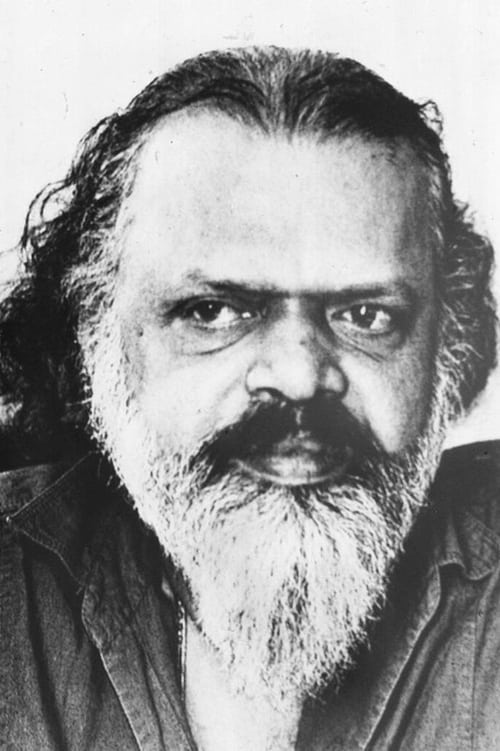
Govindan Aravindan
Nacimiento : 1935-01-21, Kottayam, Kerala, India
Muerte : 1991-03-15
Historia
Govindan Aravindan was a pioneering filmmaker from Kerala and considered one of the greatest Indian directors. He was known for his unorthodox way of filmmaking; he changed his cinematic forms consistently and experimented in storytelling without regular narrative styles. His first movie was 'Utharayanam' which was a product of his association with a group of enthusiasts experimenting with the new advances in the world of cinema. The film received critical acclaim and won the awards for best film, best director and best screenplay both at the state and national level. Thus Aravindan established himself as one of the top film makers of the country with his first movie itself. He went on to make several classics including 'Kanchana Seetha' which was a retake on the Ramayana, 'Thampu' which was hyper realistic drama, 'Pokkuveyil', 'Chidambaram' and 'Vasthuhara'.
He won the national award for the best director three times and was awarded the Padma Shri by the government of India for his services to cinema.
Apart from film direction, Aravindan was also a well established cartoonist and painter. He also composed music for a handful of movies.

Writer
Vasthuhara (Malayalam: വാസ്തുഹാര English: The Dispossessed) is a Malayalam social film by the late G. Aravindan which looks into the lives of partition refugees from East Bengal to West Bengal.

Director
Vasthuhara (Malayalam: വാസ്തുഹാര English: The Dispossessed) is a Malayalam social film by the late G. Aravindan which looks into the lives of partition refugees from East Bengal to West Bengal.

Director
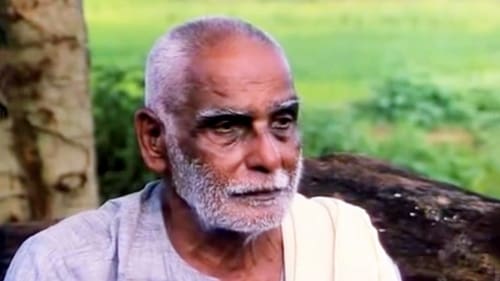
Original Music Composer
Raghu, the only son of Raghava Chakyar was born late for him. So he poured his entire love and affection on him. Raghu, studying in an engineering college in a far away city has to arrive at his home to attend the engagement ceremony of his only sister. But he doesn't. The father starts his endless wait for his son. He daily waits at the bus stop till the last bus from the town also returns. Raghava Chakyar comes to know from newspapers that Raghu was taken into custody by the Police for political reasons. He reaches the capital and meets the higher Police officials. But they pretended helpless as there is no proof that Raghu was taken into custody. Raghu's sister comes to understand that he probably would have died in police custody after being tortured, but cannot bear to tell this to her father. The old man's grip on reality slowly slips and he starts dreaming that his son is with him

Original Music Composer

Director
Panicker's one-act play deals with the relation of identification between an actor and his or her role. The action takes place on the eve of the last act of the Kathakali piece Keechakavadham (The Killing of Keechaka). The events surrounding the performance uncannily echo events in the play. One character even claims to have killed the lead actor of the play because he detested the character the man portrayed. However, the three different accounts that are presented of the same plot are never resolved or reconciled with each other. Each version is accompanied by a different style of folk music: the tune and rhythm of southern Kerala’s thampuran pattu, the pulluvan pattu and the ayappan pattu. The performers were drawn from the theatre and from Kathakali. In southern India, with its plethora of politicians using their film images to acquire inordinate wealth and power, Aravindan’s TV film bears on an eminently sensitive political as well as aesthetic issue.

Director
A film about folk dances of India that deals with their broad classification with an assumption that these folk dances are governed by the moods and methods of their own with unlimited capacity to assimilate, improvise and vibrate with vitality.
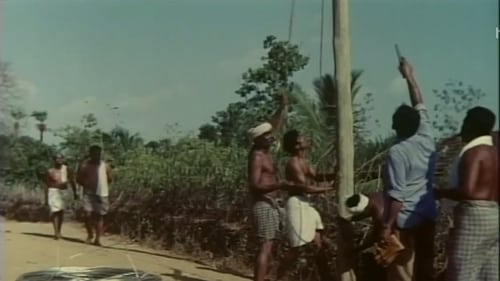
Sound Designer
In the 1950s a village in Kerala is preparing itself to be included in the nation's electric grid. Things are looking up for villagers and everyone is optimistic about the progress that electrification will bring. However soon some trouble brews starting with petty quarrels on trees being felled for the power lines. A series of unfortunate events follow the electrification as the village comes into terms with rapid modernization.

Writer
In the 1950s a village in Kerala is preparing itself to be included in the nation's electric grid. Things are looking up for villagers and everyone is optimistic about the progress that electrification will bring. However soon some trouble brews starting with petty quarrels on trees being felled for the power lines. A series of unfortunate events follow the electrification as the village comes into terms with rapid modernization.

Director
In the 1950s a village in Kerala is preparing itself to be included in the nation's electric grid. Things are looking up for villagers and everyone is optimistic about the progress that electrification will bring. However soon some trouble brews starting with petty quarrels on trees being felled for the power lines. A series of unfortunate events follow the electrification as the village comes into terms with rapid modernization.

Director
Documentary about the teachings of Jiddu Krishnamurti.

Producer
Chidambaram is based on a short story by noted Malayalam writer C V Shriraman. The film is a deeply symbolic exploration of the man-woman attraction leading to betrayal and eventually to the purgatory of guilt.

Screenplay
Chidambaram is based on a short story by noted Malayalam writer C V Shriraman. The film is a deeply symbolic exploration of the man-woman attraction leading to betrayal and eventually to the purgatory of guilt.

Director
Chidambaram is based on a short story by noted Malayalam writer C V Shriraman. The film is a deeply symbolic exploration of the man-woman attraction leading to betrayal and eventually to the purgatory of guilt.
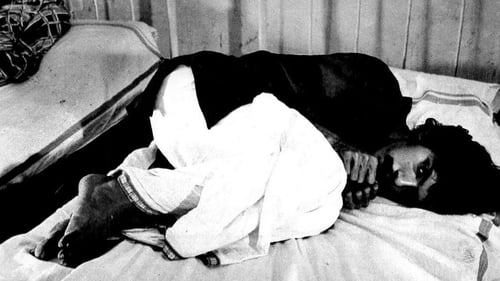
Writer
The protagonist of the film is a young artist (Balachandran Chullikkad) who lives with his father, a radical friend, a sportsman and a music-loving young woman. His world collapses when his father dies, the radical friend leaves him, the sportsman friend gets injured in an accident and has to give up sports and her family takes the woman away to another city.

Director
The protagonist of the film is a young artist (Balachandran Chullikkad) who lives with his father, a radical friend, a sportsman and a music-loving young woman. His world collapses when his father dies, the radical friend leaves him, the sportsman friend gets injured in an accident and has to give up sports and her family takes the woman away to another city.
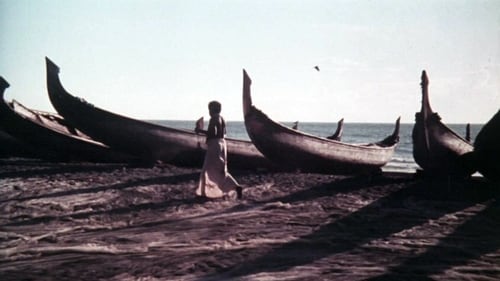
Dialogue
Esthappan is a fisherman, who lives in a seashore colony. His story unfolds through narrations by other fishermen about his miraculous acts. Through the contradictory statements of these people, a mystical figure of Esthappan unfolds.

Editor
Esthappan is a fisherman, who lives in a seashore colony. His story unfolds through narrations by other fishermen about his miraculous acts. Through the contradictory statements of these people, a mystical figure of Esthappan unfolds.

Original Music Composer
Esthappan is a fisherman, who lives in a seashore colony. His story unfolds through narrations by other fishermen about his miraculous acts. Through the contradictory statements of these people, a mystical figure of Esthappan unfolds.

Screenplay
Esthappan is a fisherman, who lives in a seashore colony. His story unfolds through narrations by other fishermen about his miraculous acts. Through the contradictory statements of these people, a mystical figure of Esthappan unfolds.

Director
Esthappan is a fisherman, who lives in a seashore colony. His story unfolds through narrations by other fishermen about his miraculous acts. Through the contradictory statements of these people, a mystical figure of Esthappan unfolds.
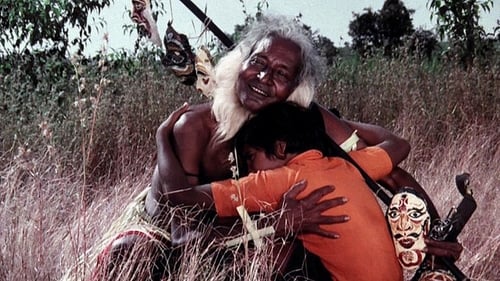
Original Music Composer
A trickster magician descends upon a village in Malabar, India, year after year, drawing children whom he transforms into animals through sorcery.

Screenplay
A trickster magician descends upon a village in Malabar, India, year after year, drawing children whom he transforms into animals through sorcery.

Director
A trickster magician descends upon a village in Malabar, India, year after year, drawing children whom he transforms into animals through sorcery.

Writer
Durante el desarrollo de la película, los espectadores seremos testigos de la geografía de un pequeño pueblo: las hojas del árbol baniano que se asemejan al film transparente, el agua reluciente del río o la luz reflejada en la arena al amanecer.

Director
Durante el desarrollo de la película, los espectadores seremos testigos de la geografía de un pequeño pueblo: las hojas del árbol baniano que se asemejan al film transparente, el agua reluciente del río o la luz reflejada en la arena al amanecer.

Original Music Composer
Aaro Oral introduced to Malayalam a genre of personal cinema, which is deliberately anti-realist.
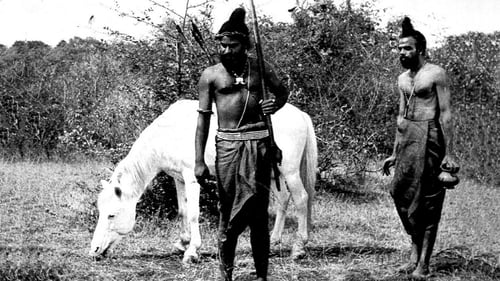
Writer
The film interprets a story from the Uttara Kanda of the epic poem Ramayana, where Rama sends his wife, Sita, to the jungle to satisfy his subjects. Sita is never actually seen in the film, but her virtual presence is compellingly evoked in the moods of the forest and the elements. The film retells the epic from a womens' liberationist perspective, and is about the tragedy of power and the sacrifices that adherence to dharma demands, including abandoning a chaste wife.

Director
The film interprets a story from the Uttara Kanda of the epic poem Ramayana, where Rama sends his wife, Sita, to the jungle to satisfy his subjects. Sita is never actually seen in the film, but her virtual presence is compellingly evoked in the moods of the forest and the elements. The film retells the epic from a womens' liberationist perspective, and is about the tragedy of power and the sacrifices that adherence to dharma demands, including abandoning a chaste wife.

Writer
Uttarayanam is about Ravi, an unemployed young man, who has to face a series of encounters during his search for a job

Director
Uttarayanam is about Ravi, an unemployed young man, who has to face a series of encounters during his search for a job









